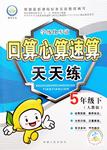题目内容
Education has an important effect on the mind or physical ability of an individual. It is the process by which society passes its accumulated knowledge, skills, and values from one generation to another.
Various non- traditional education options are now available and continue to flourish(繁荣). One of the most important uses in education is the use of technology. Teachers are encouraged to use new technological devices in order to strengthen learning among students and meet the needs of various types of learners.
The right to education has been created and recognized by jurisdiction(司法). Education is the most important concern of the government of India. Recently India has gained world recognition because many students from foreign countries come here to gain higher qualifications. One has to be educated in order to speed up the growth process in order to influence the economy. Education is indeed a powerful weapon to stop the cut- throat competition that man faces at every period of life. The importance of education in India is progressing with time. Although India has been a great foundation of learning for many years, it still needs to improve not just on the quality of education but also on the number of people being educated.
Education is not just for academic success but also to make a person become a better human being and a better performer in life. Education makes the students able enough, so that they can compete nationally and internationally. To make a student a successful survivor in life, the responsibility lies equally with the schools and the parents too. Selecting a good school is as important as choosing a suitable career option for a child. The goal of education is the advancement of knowledge and the dissemination of truth. It is education that gives us all the power and necessities of making a difference in any field.
People who are not educated have few opportunities to do what they want to do. Educated people become more responsible and informed citizens, and have a voice in politics and society. It allows people to be more productive by encouraging them to play responsible roles in terms of contributing to society.
68. Nowadays teachers are encouraged to ______.
A. study modern science and technology
B. pass all knowledge to their students
C. use non-traditional devices in class
D. meet the needs of intelligent student first
69. The underlined word “dissemination” in Paragraph4 probably means “______”.
A. spread B. ignorance C. argument D. question
70. What do we know about education from the passage?
A. It has nothing to do with society.
B. It helps people to achieve what they want.
C. It has little effect on people’s physical ability.
D. It makes a poor man become rich.
71. What is the passage mainly about?
A. The importance of education B. The responsibility of education
C. The development of education D. The purpose of education
CABA

 学练快车道口算心算速算天天练系列答案
学练快车道口算心算速算天天练系列答案For many years, doctors have been studying the way the brain __1__. We all know that the brain has two sides, the left and right. That right side controls the __2__ and the left side controls our logical thinking. We call the left side the “education” side of the brain __3__ generally, in western countries, people have __4__ this side of the brain more than the right side.
Scientists __5__ that our brain will work much more efficiently if both the right and the left side are developed __6__. In many schools today, teachers try to educate children in such a way that both sides of the brain are __7__. This can be done with logical subjects __8__ maths and science as well as with creative subjects such as art. Albert Einstein, the great scientist, did some of his best work when he was very old. He was interested not only in his work, but also in creative and imaginative __9__. It was because of his many different interests in life that he was able to __10__ the full development of both sides of his brain.
| A. works | B. thinks | C. improves | D. develops |
| A. smell | B. taste | C. sight | D. senses |
| A. but | B. and | C. until | D. if |
| A. studied | B. improved | C. developed | D. liked |
| A. believe | B. doubt | C. understand | D. hope |
| A. equally | B. specially | C. immediately | D. really |
| A. worked | B. used | C. taught | D. thought |
| A. including | B. besides | C. except | D. contained |
| A. efforts | B. plans | C. activities | D. ideas |
| A. follow | B. reach | C. watch | D. prevent |